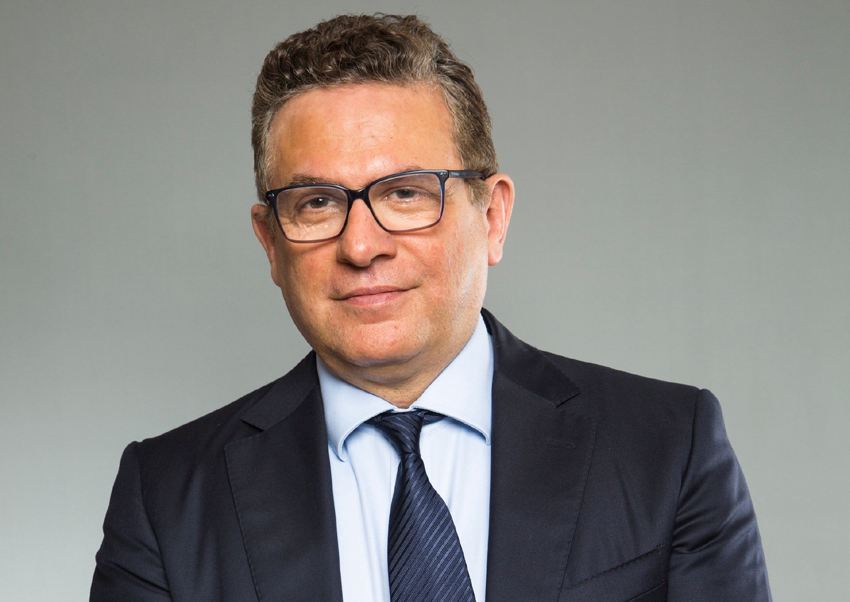The global coronavirus pandemic is having a devastating impact on the economies of countries around the world. Africa is one of the regions worst affected as state revenues have taken a big hit.
The structure of the continent’s external trade is to blame for the particularly harsh effect of COVID-19 on African countries, Khaled Sheriff, Vice President, Regional Development, Integration and Business Delivery, at the Africa Development Bank (AfDB), said at the opening day of the 2020 Global Partnership for African Development (G-PAD) forum on Friday.
Most African countries depend heavily on the export of primary commodities for forex inflow and public revenue and they import most of their consumer goods, Dr Sheriff explained at the virtual conference, whose theme is Strengthening Ties and Building Bridges for Recovery and Growth.
For example, 26 of the 54 African countries are dependent on the export of only three primary commodities while the continent’s big six oil producers depend on hydrocarbon exports for about 80 per cent of their total revenues, the Egyptian economist pointed out.

The reduced demand for these products such as oil and gas as well as coffee and cocoa, causing a fall in their prices, means that the forex earnings of many countries have dropped sharply leading to their governments devaluing their national currencies.
Since public revenues depend mainly on the export of commodities, weaker prices in the global market means lesser resources available to government at a time that they need to spend more on health care and provide relief to the population affected by the restrictions introduced to curb the spread of the pandemic.
Conventional economics expect that a weaker currency should boost exports, but in the case of most African countries the reverse had been the case for intermediate and finished products, Sheriff said. “Weaker currencies have also increased the price of imported inputs which results in higher prices of products, leading to still lesser exports,” the development banker explained.
Going forward, Sheriff said governments must improve their internal revenue generation by widening the tax base of their economies. “Too many businesses are informal in Africa, which means that they don’t pay tax and contribute to public revenues,” Sheriff said.
“Moreover, because the informal sector is so large the GDPs of many countries are understated,” the AfDB chief noted. This affects the ability of the countries to borrow even though they have a lot of resources to leverage against loans.
The AfDB vice president therefore called on African governments to bring more economic activities into the formal sector by carrying out reforms for tax coherence (to avoid excessive taxation) and to reduce bureaucracy.

Sherif was also of the view that African countries needed to trade more with one another if they were to overcome the economic difficulties of a post-Covid world.
He however added that African countries had to create the infrastructure that would enable them access each other’s markets to reduce the dependence on foreign markets. A more integrated Africa would lead to the continent producing more of what it consumes as the pandemic had also revealed the heavy dependence of Africa on external sources for basic, essential goods, he added.
Sheriff expressed the hope that greater intra-African trade would be achieved through the effective operationalization of the Africa Continental Free Trade Area (AfCFTA), which will commence in January 2021, spurring industrialization.
The AfDB chief stated that despite the growth in GDP experienced by many African countries in the last decade, more than 110 million Africans still lived in dire circumstances. “We are focusing our intervention on ensuring access to electric power so we can push the continent towards industrialization so that we can create wealth that can stay on the continent,” Sherif said of the AfDB’s lending policy to drive growth in Africa.
Timi Olanrewaju, founder and executive director of Lead Africa International, convener of the conference, said that Africa was a promising trade partner for Germany with ties that needed to be strengthened to accelerate African growth.
Both Christoph Grammer, Head of the Development Cooperation Centre, Baden-Wurtemberg, and Philipp Keil, Managing Director of the Baden-Wurtemberg Development Cooperation Foundation (SEZ) expressed their support for the conference.
G-PAD 2020 noted that the pandemic had caused the EU and most of its Member States including Germany, to shift their priorities to domestic affairs.
However, the pandemic would not last forever, but sustainable partnerships would, as they were a gateway to resolving a plethora of challenges on the two continents including, the European migration ‘crisis’, unemployment in Africa and the spill-over effects it has on both continents.
Organised by Lead Africa International e.V., a Germany-based global non-governmental organization dealing with development issues, G-PAD 2020 holding on 27-28 November focuses “on establishing and reinvigorating multilateral cooperation with Africa for growth and development” post-Covid.
The Friday session featured keynote speeches and panel discussions on how best African economies could recover from the pandemic-induced recession.
Femi Awoniyi & Lolade Adewuyi
READ ALSO G-PAD 2020: Creating more opportunities for African youths post-Covid
 THE AFRICAN COURIER. Reporting Africa and its Diaspora! The African Courier is an international magazine published in Germany to report on Africa and the Diaspora African experience. The first issue of the bimonthly magazine appeared on the newsstands on 15 February 1998. The African Courier is a communication forum for European-African political, economic and cultural exchanges, and a voice for Africa in Europe.
THE AFRICAN COURIER. Reporting Africa and its Diaspora! The African Courier is an international magazine published in Germany to report on Africa and the Diaspora African experience. The first issue of the bimonthly magazine appeared on the newsstands on 15 February 1998. The African Courier is a communication forum for European-African political, economic and cultural exchanges, and a voice for Africa in Europe.


























